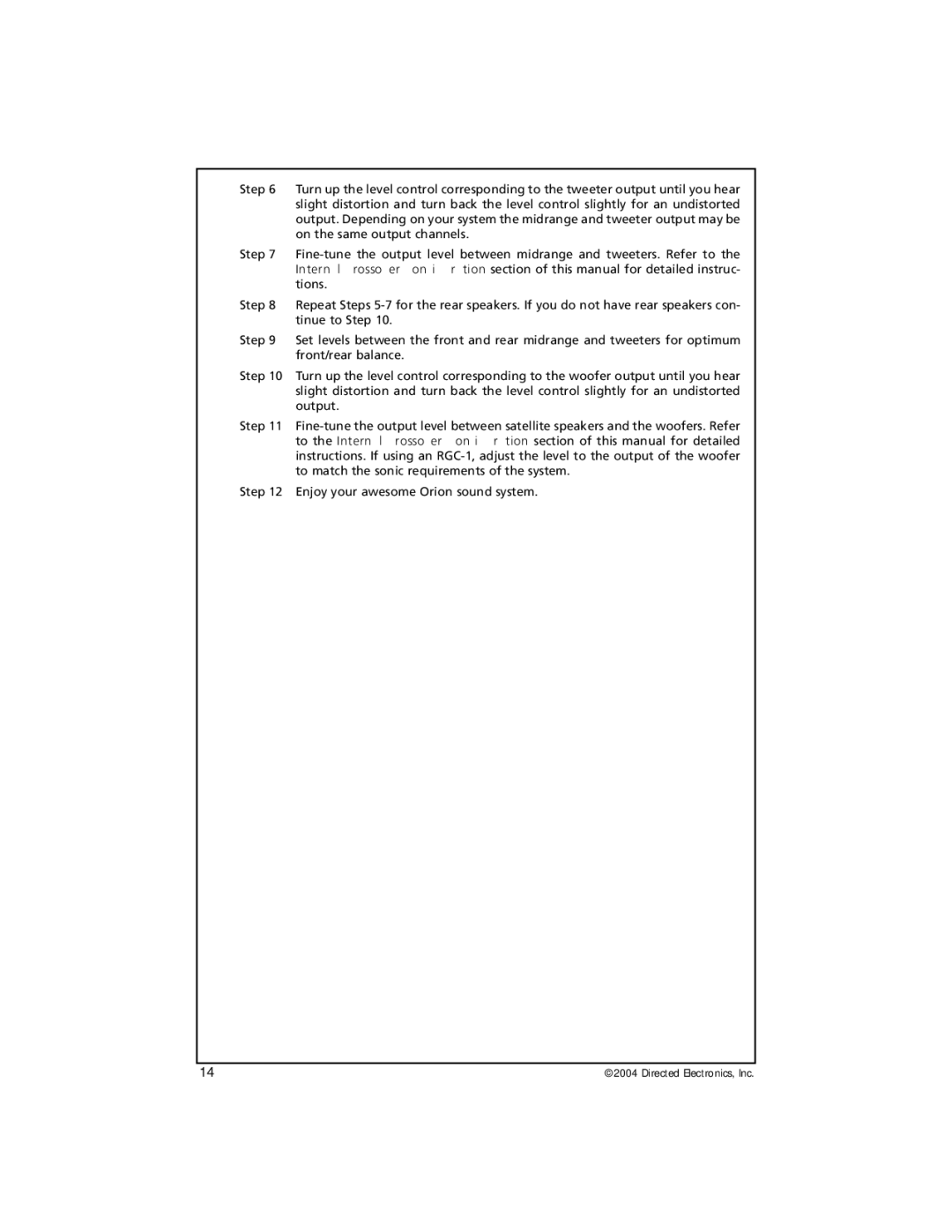3002 specifications
The Orion 3002 is a highly advanced spacecraft designed for deep-space exploration, research, and potential colonization missions. Boasting cutting-edge technologies and innovative engineering, the Orion 3002 is a hallmark of modern aerospace design, focusing on efficiency, reliability, and adaptability.One of the primary features of the Orion 3002 is its powerful propulsion system, which employs a hybrid of traditional chemical propulsion and advanced ion thrusters. This combination allows for swift maneuverability within the Earth's atmosphere and efficient long-duration travel in the vacuum of space. The ion thrusters utilize electric fields to accelerate ions, providing a thrust that is highly efficient and capable of extending travel durations.
The spacecraft is constructed using lightweight, durable materials that significantly enhance its structural integrity without impeding performance. The exterior is designed to withstand the harsh conditions of space, including fluctuations in temperature, radiation exposure, and micrometeorite impacts. Additionally, the Orion 3002 is equipped with advanced thermal protection systems that maintain optimal operating conditions for onboard systems and crew.
The Orion 3002 features a cutting-edge avionics suite that integrates artificial intelligence and machine learning algorithms. These systems are capable of real-time data analysis, enabling the spacecraft to make autonomous decisions regarding navigation, course adjustments, and systems monitoring. This level of intelligence not only enhances safety but also allows for more complex mission profiles, including those requiring minimal human oversight.
In terms of crew accommodations, the Orion 3002 prioritizes comfort and functionality. The living quarters are designed to support long-duration missions with ergonomic sleeping arrangements, a fully equipped galley, and dedicated research labs that allow astronauts to conduct a variety of experiments during their travels. Advanced life support systems recycle air and water, ensuring sustainability throughout the mission.
The Orion 3002 also incorporates advanced communication systems that enable seamless, high-bandwidth data transmission over vast distances. This technology employs a series of relay satellites and deep-space communication networks, ensuring that the crew remains connected with mission control and can share their findings efficiently.
In conclusion, the Orion 3002 stands as a testament to human ingenuity and the quest for knowledge beyond our planet. With its blend of advanced technologies, durable construction, and crew-centric design, it is well-equipped to tackle the challenges of deep-space missions, paving the way for future exploratory endeavors that expand our understanding of the universe.

